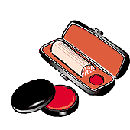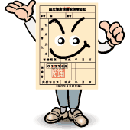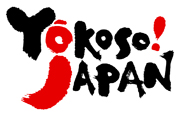J&F PLAZA - HELPFUL TIPS
1. Utilities |
|
| J&F Guest Houses and J&F Monthly apartments are furnished with a gas range, electrical appliances, etc. Also utilities (gas, water, electricity) are included in the rent. You can use these furnishings freely from the day you move in. | |
 |
2. Phones |
| (1) Phones | |
| Each
guest house has a public phone. However, not all phones can make international calls. If you'd like to call overseas, please use a public phone or use
a private cell phone. |
|
| (2) International Calls | |
| To directly make an international call
dial (International access code)+(Country code)+(Area code)+(Phone number)
in that order. The international access code is the number you dial before
the country code. If you call a foreign country from Japan the international
access code is 001 or 0041. If you call Japan from a foreign county, you
must dial the international access code for that country. |
|
3. Banking |
|
| (1) Opening an account | |
| When opening an account you must first of all fill in
the "Application for Saving Account." form with the following
information: Name, address, and the amount you will be depositing that day. |
|
| The counter with a "go-shinki(New Accounts)" sign
is the one where you can open a new account. |
|
| You will need to stamp the appropriate spot with your Inkan(signet).
If you do not have an Inkan, the bank may accept your signature. |
|
| The following are required when opening a bank account: a. ID such as a Certificate of Alien Registration or a passport. b. Your personal signet(Inkan) if you have one (not always required for foreign residents). |
|
| There are various kinds of IDs you can use when opening
an account. They are a driver's license, health insurance card, company
ID, school ID, Certificate of Seal, passport, and Certificate of Alien
Registration. If the address stated in your driver's license is different
from your current address or if you don't have driver's license (if you
present your ID except for a driver's license), other document which proves
your current address will be required. Resident's card, utility bill
or receipt (within past 3 months) with your current address. |
|
| When you open your savings account, you can also apply
for a cash card, which allows you to use an ATM (Automatic Teller Machine). |
|
| (2) Automatic payment system | |
| You can pay utility bills such as your water, gas, electricity
and telephone bills through the timesaving automatic payment system. |
|
| To apply for this system, bring your bankbook, the personal
seal with which you opened your account, and your previous month's paid
receipt for the bill you wish to have automatically paid from your bank. |
|
| Automatic payment will start one or two months after you
apply for automatic transfer. |
|
| (3) How to use an ATM | |
| It is convenient to have a cash card because you will have access to ATMs throughout the city. Banks are open 9:00 a.m. to 3:00 p.m., Monday through Friday. But with your cash card, you can use it from 8:00 a.m. to 9:00 p.m. Monday through Friday and 9:00 a.m. to 5:00 p.m. on Saturdays and Sundays | |
 |
6. Alien Registration |
Foreigners who will stay in Japan for more than 90 days are required to apply for Alien Registration. |
|
| Apply to the city government office where you live within
90 days of entering Japan[within 60 days if he/she becomes a foreigner
in Japan (such as by birth)]and register the all information (which Alien
registration law stipulates). The Certificate of Alien Registration will
be issued based on this registration. |
|
| For registration, your passport and two photos taken within
the past six months from the same negative are required (The photos must
show a frontal view from the shoulders up with no hat). You must register
in person. There is no charge to register |
|
| Applicants under 16 years of age do not need photos, and
their applications can be made by a relative from their household. |
|
| Since a Certificate of Alien Registration (for those 16
years old and older) is a plastic card, it usually takes about 2 to 3
weeks after registration until the certificate is issued. |
|
 |
|
7. The Post Office |
|
| (1) Sending Mail | |
| Ordinary letters placed in a public mailbox are collected
by a post office clerk. Collection times are listed on the side of the mailbox. |
|
| When you send parcels, you can either take them to your
post office, or telephone the post office and have them picked up at your home. |
|
| You can send money by a postal money order or transfer
it into your recipient's postal account. Also, you can send cash by registered mail, but only within the country. |
|
| A postal account can be used like a bank account. You
can deposit and withdraw your money at any post office in the country,
and make account transfer payments of public utility charges such as gas,
water, electricity and telephone. |
|
 |
8. Seal |
| A personal seal is used in Japan for the same purposes as a signature is used in other countries. Types of seals include regular personal seals used for confirmation and registered seals used for important official documents. |
|
| To make your financial life easier in Japan, it is recommended
that you obtain a personal seal (Hanko). |
|
| Seal registration is to register the imprint of your seal at the City Office. The registered seal is called Jitsuin. After registration, you can request a Certificate of Seal Registration if necessary. The certificate proves that the document with your registered seal is legal, and is required when when signing important contracts involving the leases or loans, etc. To obtain this certificate, bring your Seal Registration Document (Card) to the Residents' Division of the City Office or a branch office. | |
 |
|
7. Health Insurance |
|
In Japan, one of your greatest worries may be "what do I do if I get sick?"Japanese doctors and hospitals are notoriously expensive . Visiting a doctor for a simple cold or flu is likely to cost you around 5,000yen. If you are hospitalized for appendicitis, it is likely to cost hundreds of thousands of yen. Because of these high prices, it is difficult for any individual to afford doctor fees on their own. To ensure that people can receive medical treatment without worry, everyone who lives in Japan is legally required to join one of the public health insurance plans. |
|
| The Health insurance system is intended to reduce the
high cost of health care. Once you have enrolled in the national health
insurance program, you will pay only 30% of the doctor's fee if you get
sick or are injured. The rest of the fee will be paid for by your insurance.
Everyone who lives in Japan is legally required to join one of the public
health insurance plans. |
|
| Foreign students as well as foreign residents must enroll in the National Health Insurance Program if they are unemployed or not enrolled in a worker's health insurance program at their place of employment. | |
| Foreigners who can enroll in National Health Insurance must have Certificate of Alien Registration and his/her period of stay must be more than a year. Therefore, a foreigner who stays for a short term or for sightseeing only cannot enroll. | |
| Insurance enrollment is conducted at the city offices where you live. First, go to the National Health Insurance Dept. of the same office where you registered your name as a foreigner. The insurance fee varies depending on your income and the area you live in. Also, there are autonomies which support foreign students in reducing the cost of insurance. For more information, contact your company or the National Insurance Dept. of the city office in the area you live. | |








